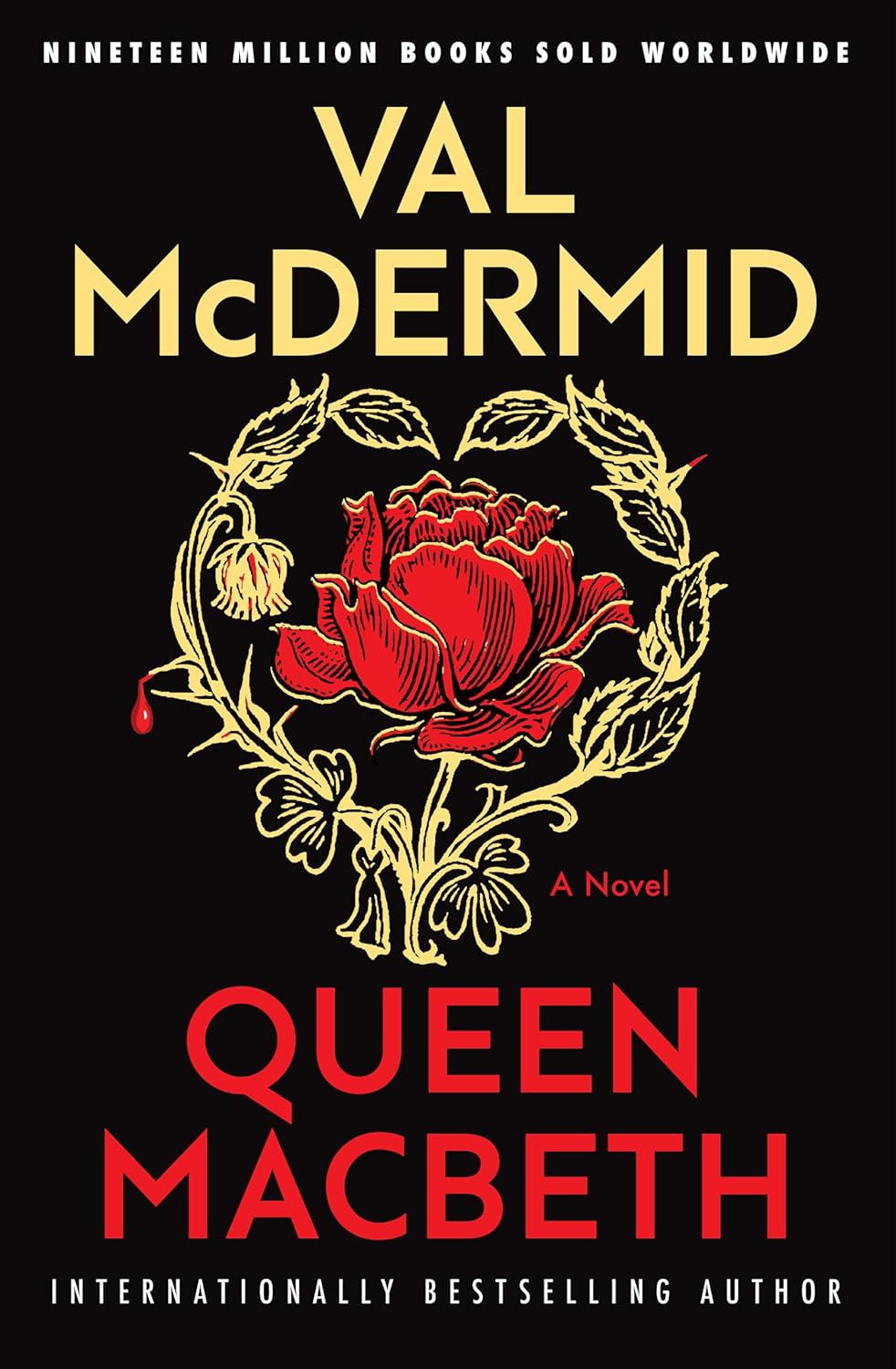Here at Bardfilm, we try to stay abreast of Shakespearean output of various kinds, and that includes Modern Shakespearean Fiction. Usually, we only take the time to comment on Shakespeare-related novels that have a fair bit of interest and / or enjoyment. When we read one that's not so great, we generally set it aside and don't mention it. It just seems polite.
But sometimes a book shows up somewhat-inexplicably on a number of "Top Shakespeare-Related Novels." In such a case, it's only polite to point out that it really doesn't need to be so highly rated.
That's the case with Queen Macbeth. I requested it from the library after seeing it on at least two "Top [However Many] Shakespeare Novels" lists.
In my view, it's not that good.
Queen Macbeth is intended to be a more accurate history of the historical Lady Macbeth than we get from Shakespeare. That's its main selling point. However, though there many be some parts that are rooted in history—and though there are certainly many plot points that differ from Shakespeare's play—there's much that's debatable at best and highly speculative at best. Did the historical Macbeth actually unite all of Scotland under his banner of freedom and peace? Well, arguably. Did Lady Macbeth have a child by Macbeth while married to another man? I suppose it could have happened that way. But if you're presenting your book as providing the true story of Lady Macbeth (or a novelization of the true story of Lady Macbeth), your audience will probably expect a fair bit of historically-reliable background material.
But, really, a novel that goes those directions could be quite interesting. Instead, this novel is mainly just tedious. Yes, it's mercifully brief, but it's also lackluster and plodding. "Tedious and brief?" you ask. "Like the Pyramus and Thisbe play in Midsummer Night's Dream?" Yes, except it lacks the humor and interest and clever use of language that the Rude Mechanicals bring to their retelling of that age-old story.










No comments:
Post a Comment